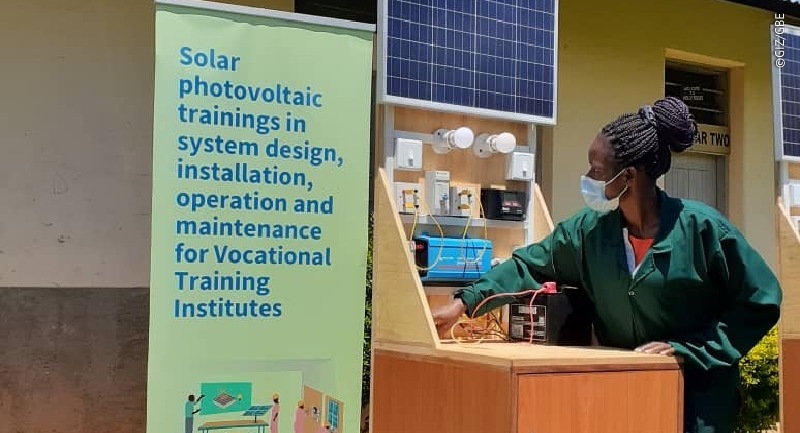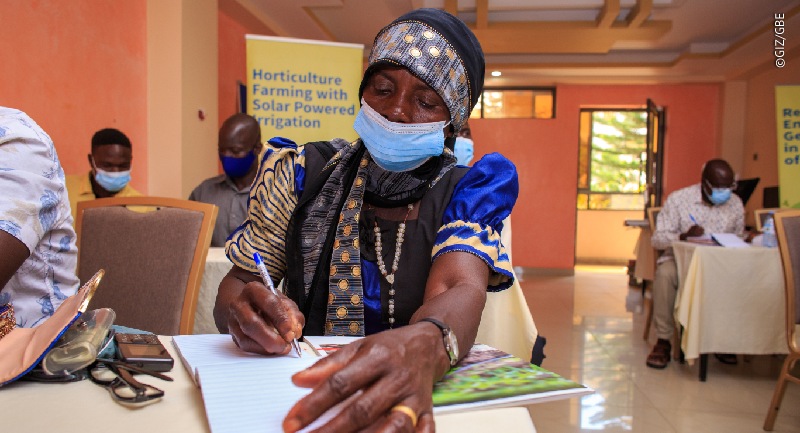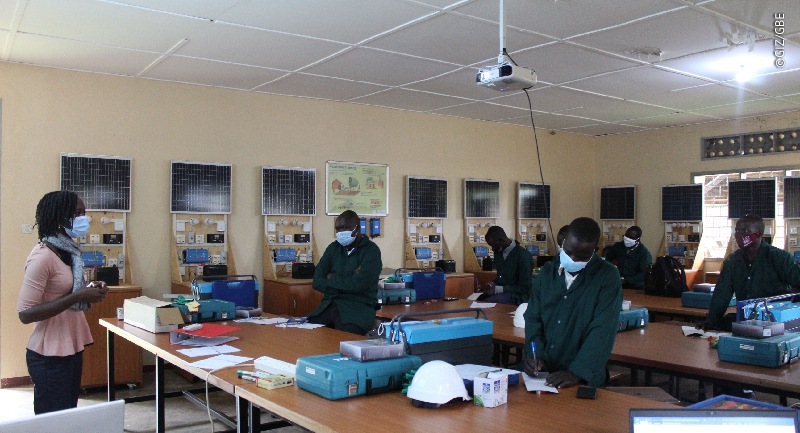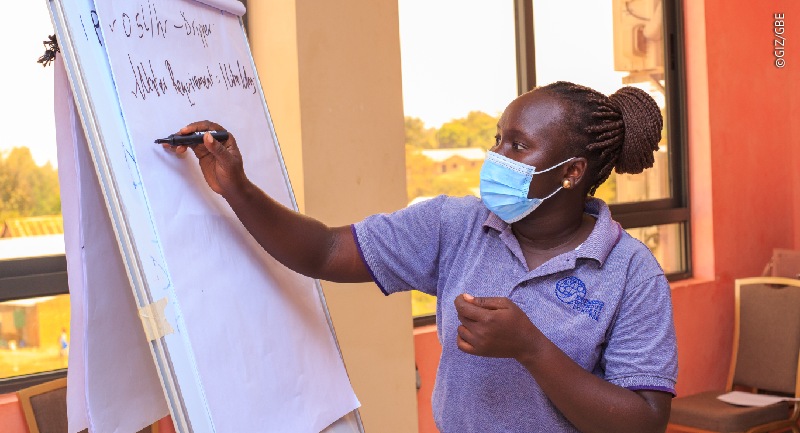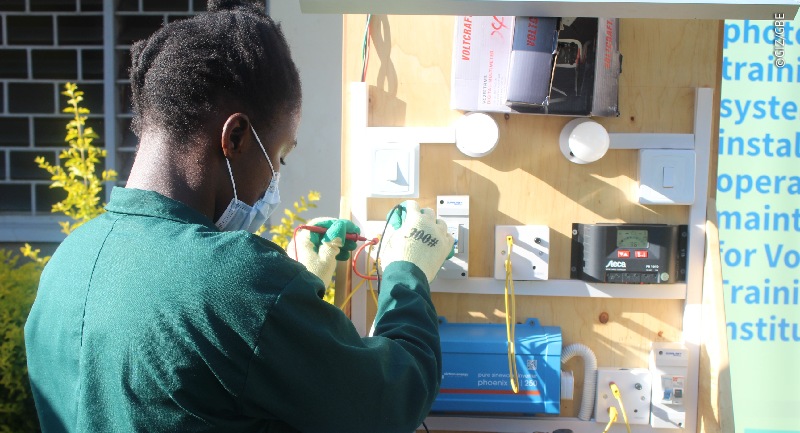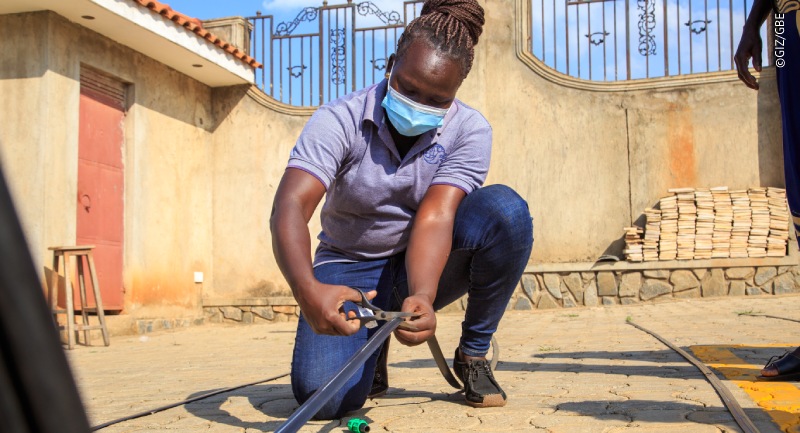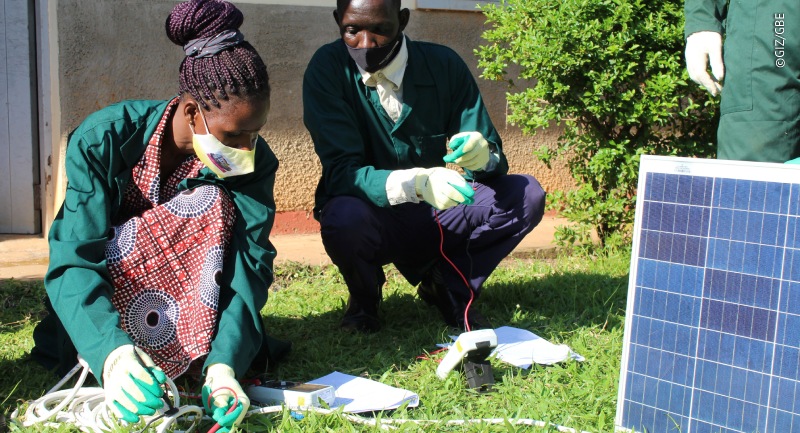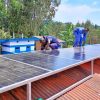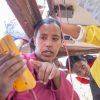GBE Uganda’s Gender Approach – Promoting Energy Skills Development for Women
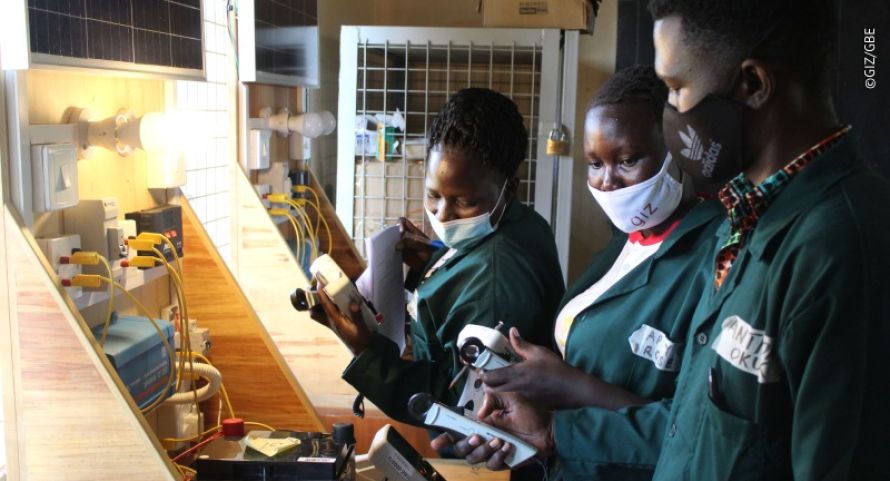
Energy is essential for the economic advancement of men and women alike. Yet, in many places the number of women making use of modern forms of energy, as well as the number of women pursuing jobs as technicians and professionals in the field of renewable energy, are often much lower compared to men. In Uganda, GBE seeks to address this through a range of approaches to enable more women to join the occupational field of renewable energy.
A prerequisite for the broader uptake of renewable energy solutions – especially among farmers, cooperatives, businesses, and social institutions in rural Uganda – are well-trained solar technicians and professionals. Through its Technical Training and Skills Development project component, GBE Uganda supports the expansion of training opportunities in the occupational field of electricity and solar technology. And GBE Uganda is committed to train particularly female technicians, professionals, and users of renewable energy solutions, and to advance women’s role in this field.
As technical fields are still largely dominated by men in Uganda, GBE put in place a gender strategy and developed a range of approaches to particularly attract and enable women to participate in the project’s educational offers:
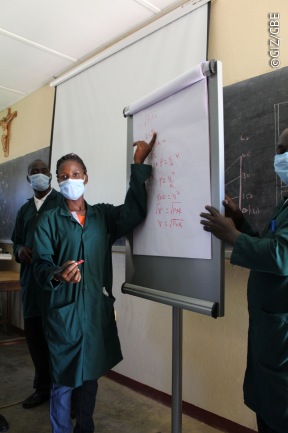
- During the preparation phase of its technical trainings (for example on solar powered irrigation), GBE Uganda organised so-called “Gender-smart Awareness Workshops”. These were held at the project’s demonstration sites, and served to invite female community members and members of agricultural cooperatives to learn about energy topics and to inform them about the upcoming training opportunities.
- Moreover, GBE Uganda engaged local government officials and other partners to promote the project’s educational offers, and sensitized partners on how to reach out to women so as to encourage their participation in the trainings.
- GBE Uganda widened its search and outreach activities significantly to identify female training participants. This included for example inviting community extension workers in addition to farmers, and to look for female professionals across the water, energy and agricultural sectors. Private companies – for example water pump sellers and borehole drillers – were encouraged to nominate at least one female participant per male sent to the training.
- As education opportunities for women in fields of science, technology and engineering are still inequitably distributed, GBE Uganda used adapted qualification criteria for the training courses to lower the barrier of entry for women, and additional application windows and training rounds were organised exclusively for women.
- During the trainings, GBE Uganda used female teachers to lead classes, and to serve as inspiring real-life examples of women engaged in this occupational field.
- The training materials used during trainings at the project’s demonstration sites were adapted to the needs and preferences of women. For example, GBE Uganda re-designed stands for irrigation tanks to include stepladders and handrails, making them safer and more comfortable for women.
- Some approaches were more ad-hoc and makeshift at first: when several female training participants failed to organise childcare and brought their children to the training classroom, GBE Uganda improvised a kindergarten at the training venue. The project has since vowed to take a more formal approach to offering childcare services to female students during the trainings.
As a result of these activities, GBE was already able to increase the number of female training participants beyond the number of women that would have participated without dedicated intervention. And still, GBE Uganda’s aim to support women in the energy sector does not stop here. Going forward:
- GBE Uganda is in the process of establishing a female-dominated ‘Solar Irrigation Agronomy Club’ at the project’s newest partner institute, the Gulu University in Northern Uganda. The club aims to promote the use of renewable energy in the agriculture sector; and to raise the interest of and empower particularly female university students to work in the field of water, energy, and food security.
- GBE Uganda’s educational partner Comboni Technical School Angal (CTSA) in Nebbi in Northwest Uganda will be supported to set up a women-only dormitory at its vocational training campus. This will enable the first-time participation of women in courses offered at the vocational school. The lack of dedicated accommodation for women has so far discouraged female students from pursuing education at the school.
For GBE Uganda, empowering women in the field of renewable energy is a way of life, and the project aims to “walk the talk” by practicing this ambition in its own team: the GBE Uganda team is predominately staffed by female Energy Advisors in leadership roles who practice keen awareness for the needs of women in this field.
